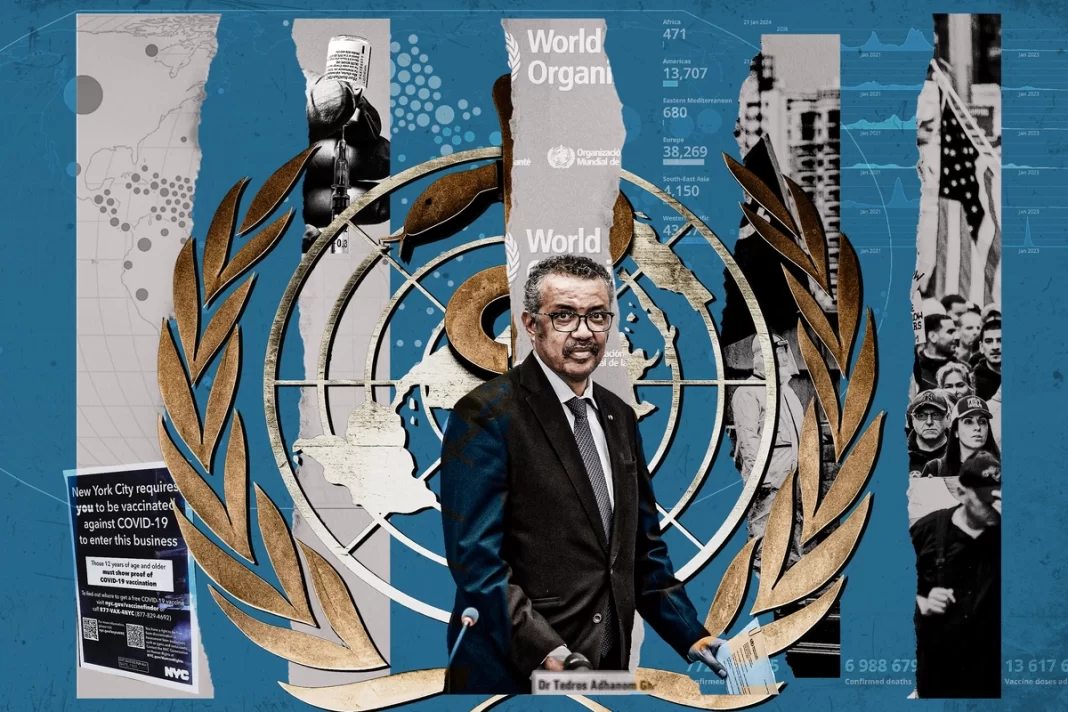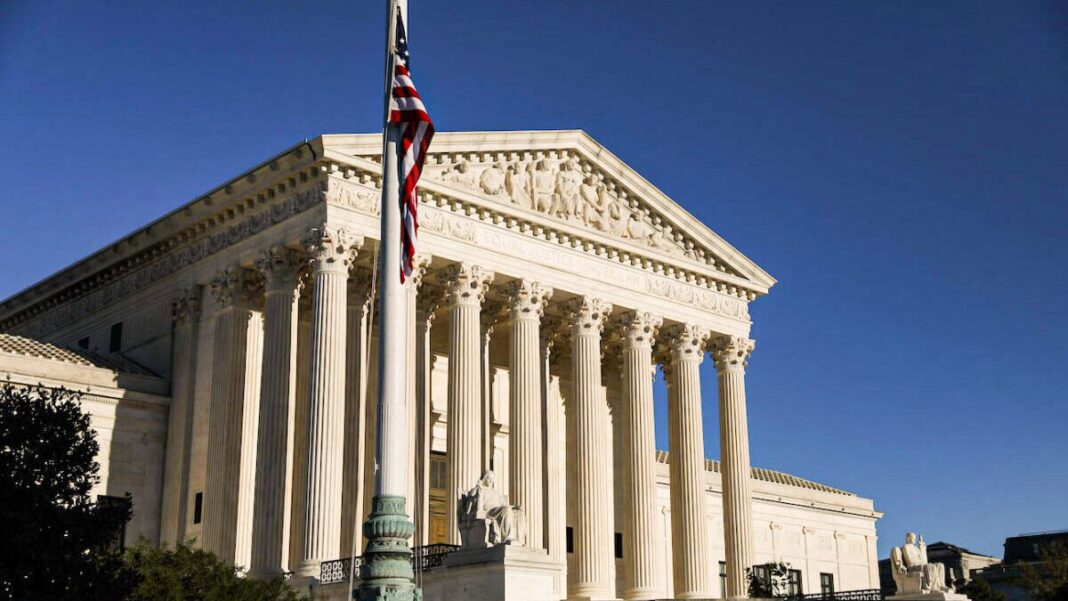The U.S. Supreme Court heard a pivotal case on Feb. 8 surrounding whether a state court could effectively remove presidential candidates from ballots over their alleged engagement in an insurrection.
The decision will likely be historic in that it could provide a new interpretation of a relatively untested area of law. Oral argument alone raised a series of important constitutional questions for the country while also indicating the justices’ inclinations on key legal issues.
Here are some of the key takeaways from the Feb. 8 hearing:
- Colorado Voters Who Brought The Lawsuit Face a Steep, Uphill Battle
- The Court Is Concerned About States Being Too Powerful in National Elections
- Events of Jan. 6 Seemingly Less Important Than Legal Questions Surrounding the Constitution’s Phrasing and Federalism
- The Court Faces ‘Very High Stakes’
1. Colorado Voters Who Brought The Lawsuit Face a Steep, Uphill Battle
Oral argument indicated it will be difficult for the Colorado voters challenging former President Trump to get a Supreme Court ruling in their favor. The justices’ comments suggested that they thought many important legal hurdles had to be cleared for the court to uphold Colorado’s ballot disqualification.
Although their questions tended to focus on the balance between state and federal power, they cast doubt on numerous aspects of the voters’ case. That included whether President Trump was “an officer of the United States” under Section 3, whether he received adequate due process, how practical a ruling empowering states would be, and if the voters’ arguments conflicted with other aspects of the Constitution.
Justice Sonia Sotomayor seemed most sympathetic to the Colorado Supreme Court ruling. She told Jonathan Mitchell, who represented President Trump, that “there’s a whole lot of examples of states relying on Section 3 to disqualify insurrectionists for state offices, and you’re basically telling us that you want us to go two steps further … You want us to say that self-execution doesn’t mean what it generally means.”
“Self-execution” refers to the idea that courts can enforce Section 3 without prior guidance from Congress.
“You want us now to say it means that Congress must permit states or require states to stop insurrectionists from taking state office … and so this is a complete preemption in a way that’s very rare, isn’t it?”
While Mr. Mitchell faced pointed questions from other justices, the court’s skepticism seemed to be heavier in response to Mr. Murray.
Multiple times during questioning the justices appeared doubtful in response to arguments advanced by him. For example, Justice Ketanji-Brown Jackson seemed incredulous when asking Mr. Murray about ambiguity in Section 3: “So let me just say so your point is that there’s no ambiguity with—with having a list and not having ‘president’ in it, with having a history that suggests that they were focused on local concerns in the south, with this conversation where the legislators actually discussed what looked like an ambiguity, you’re saying there is no ambiguity in Section 3?”
Justice Jackson also said what was “really … troubling” to her was that Section 3 listed several types of officials who could be disqualified, but not the president. Several justices—Justices Neil Gorsuch, Clarence Thomas, and Samuel Alito—suggested that Mr. Murray wasn’t responding to their questions.
“I’m not going to say it again, so just try and answer the question,” Justice Gorsuch said, seemingly frustrated. He had been asking Mr. Murray whether a lower-level federal official would be justified in disobeying President Trump during his remaining time in office after Jan. 6, 2021. Mr. Murray’s position was that President Trump had disqualified himself on that day, but that some kind of procedure was needed to validate that disqualification.
By Sam Dorman







